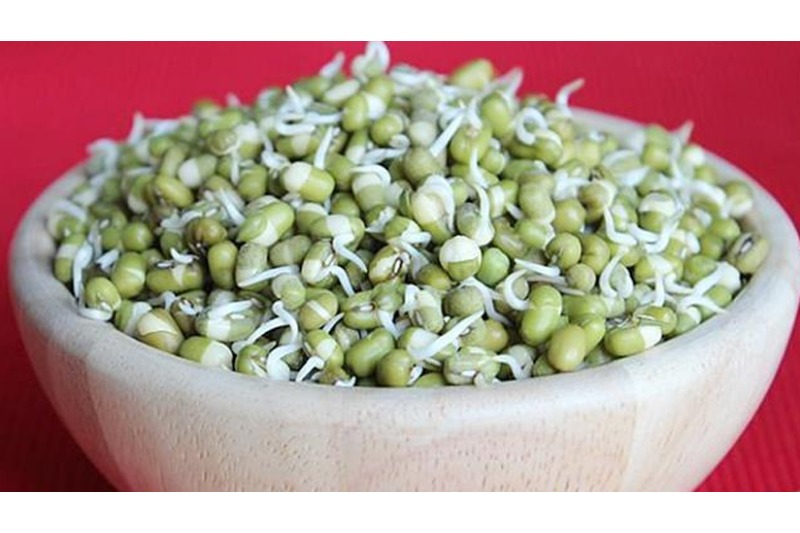6 Advantages Of Eating Sprouted Moong Dal Every Day

There are 6 strong arguments in favor of eating sprouted moong dal every day
1. Helps in digestion
The potential of sprouted moong dal to improve digestive health is one of its most notable advantages. Proteins and complex carbs are broken down into simpler forms during the sprouting process, which facilitates easier digestion by the body. This aids in improved nutrient absorption and lessens the possibility of bloating and gas. Moong dal that has sprouted has more enzymes, such as amylase and protease, which help break down proteins and carbs. These enzymes are essential for dissolving dietary components into nutrients that can be absorbed, which facilitates digestion.
2. Helps with weight loss
Adding sprouted moong dal to your diet might be a great way to support individuals who are trying to lose weight. It helps you feel full and satisfied without gaining excess weight because it is high in vital nutrients and low in calories. The high fiber content in sprouted moong dal helps with digestion and increases feelings of fullness, both of which can lead to a decrease in total caloric consumption. By increasing fullness and decreasing appetite, a high-fiber diet can greatly aid in weight loss and control. Lean muscular mass is necessary for burning calories even when at rest, and sprouted moong dal’s high protein content contributes to this process.
3. Improves heart health
Rich in heart-healthy elements like potassium, magnesium, and antioxidants, sprouted moong dal is a superfood. Together, these nutrients cut cholesterol, control blood pressure, and minimize the risk of cardiovascular illnesses. Legumes that have sprouted, such as moong dal, have far higher antioxidant activity. These antioxidants aid in the elimination of free radicals, which are known to induce inflammation and oxidative stress, two conditions that are connected to heart disease. While magnesium supports heart health by controlling heartbeat, potassium in sprouted moong dal helps relax blood vessels, decreasing blood pressure.
4. Increases immunity
Your body’s first line of defense against infections and illnesses is a strong immune system. Because sprouted moong dal has a high vitamin, mineral, and antioxidant content, eating it on a daily basis helps strengthen your immune system. It has an especially high concentration of vitamins C and A, which are vital for boosting immunity. Moong dal’s antioxidant potential is enhanced by sprouting, which dramatically raises the food’s vitamin C content. While vitamin A supports the integrity of the mucous membranes in the respiratory system, which serve as a barrier against viruses, vitamin C is widely known for its immune-boosting qualities.
5. Enhances blood sugar regulation
Controlling blood sugar levels is essential, particularly for those who already have diabetes or are at risk of getting it. Because sprouted moong dal has a high fiber content and a low glycemic index, it can help control blood sugar. Compared to foods with a high glycemic index, those with a low index cause blood sugar levels to rise more gradually and steadily. Low-GI meals can help regulate blood sugar levels and lower the risk of type 2 diabetes. Because sprouted moong dal has a high fiber content, it slows down the blood’s absorption of sugar, which helps to keep blood glucose levels steady.
6. Enhances the health of the skin
Your skin is a reflection of your general health, therefore keeping a healthy complexion requires eating a diet high in vitamins and antioxidants. Antioxidants, such as flavonoids and polyphenols, which shield the skin from oxidative damage brought on by free radicals and help it seem younger, are abundant in sprouted moong dal. antioxidants in food have a part in minimizing skin damage and delaying the aging process. Moong dal that has sprouted contains vitamin E, which keeps the skin nourished and smooth. Thus, regular ingestion of sprouted moong dal can support skin that is healthy and radiant.